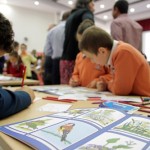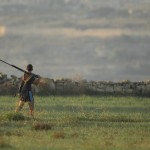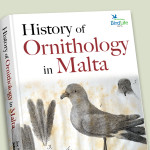Thanks to the initiative of the students and teachers at the San Ġorġ Preca College, Blata l-Bajda Secondary School now has a reading garden which was created under the programme Dinja Waħda whose main aim is to connect children with nature.
‘Ġnien il-Qari’ was inaugurated by Minister for Education and Employment Evarist Bartolo, College Principal James Camilleri and Head of School Emile Vassallo in the presence of BirdLife Malta representatives during a brief event held on the school premises which included a presentation by the students showcasing the making of the garden. At the end of the ceremony, Minister Bartolo handed out participation certificates to the students involved in this project, and their teachers.
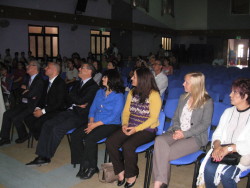 The project – carried out by the school with the support of BirdLife Malta – involved the creation of a garden in a 200 square metre space on school grounds, with seating for a reading area for whole-school use.
The project – carried out by the school with the support of BirdLife Malta – involved the creation of a garden in a 200 square metre space on school grounds, with seating for a reading area for whole-school use.
The reading garden at Blata l-Bajda forms part of a growing network of gardens, called ‘Ġonna Dinja Waħda’, created by schools and on school premises, together with support from BirdLife Malta and working in collaboration with other entities. PARK, the directorate within the Ministry for Sustainable Development, the Environment and Climate Change, was a partner in this project and supported the building of stone seating as well as provision of soil and gravel for paths and landscaping.
The Blata l-Bajda Secondary School is committed to the environmental education aims of Dinja Waħda and adopted the creation of the reading garden as cross-curricular project with a project-based learning methodology. The garden was created by 60 students and their teachers of English, ICT, Maltese and Science.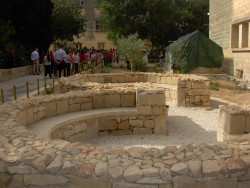
During the project, students used the four subjects in a hands-on approach to solve problems, tackle issues, and discover and apply skills to a series of carefully planned steps leading to the creation of the garden.
Teachers carried out the project as part of their lessons and commented on several advantages of this approach to learning. Common observations were: enhanced learning due to knowledge being applied rather than abstract; a great sense of pride and achievement in having created something beautiful for the school; a marked difference in relations and collaboration skills among students.
The primary aim of Dinja Waħda gardens of connecting with nature was clearly demonstrated through this project. The school has not only increased its biodiversity, but also empowered children to take action for the environment and reap the benefits of a healthier environment.
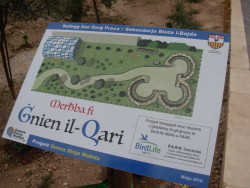 Teachers involved have increased their appreciation of the benefits of project-based learning as well as learning about local wildlife. The area is already richer in wildlife and this has been noticed by students.
Teachers involved have increased their appreciation of the benefits of project-based learning as well as learning about local wildlife. The area is already richer in wildlife and this has been noticed by students.
The school has also started to keep a flora and fauna diary to see how their creation has enriched school biodiversity. This diary will continue next scholastic year through an eTwinning project the school applied for to ensure continuity of learning and ownership.
Click here to read the Maltese version.

